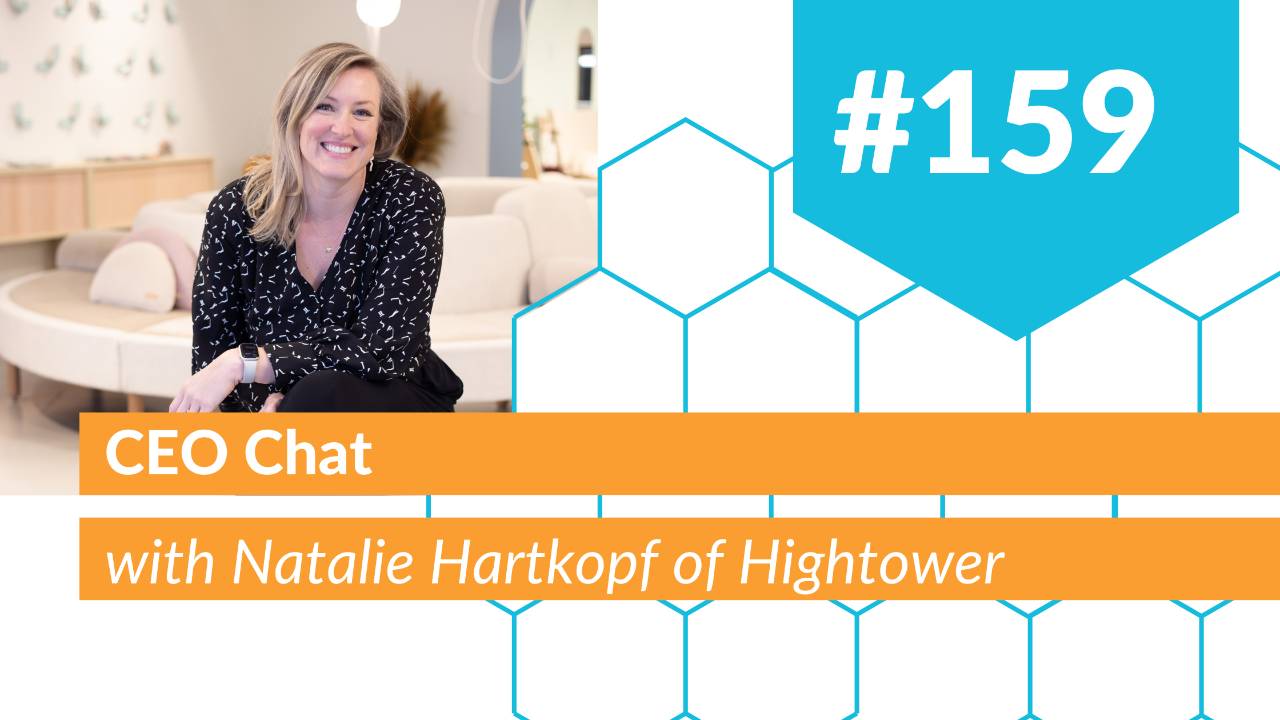CEO Chat with Natalie Hartkopf of Hightower

The commercial furniture industry is experiencing significant transformation, with companies like Hightower leading the charge in sustainable practices, social responsibility, and innovative product development. In a recent conversation with Natalie Hartkopf, CEO of Hightower, we gained valuable insights into how this family-founded furniture manufacturer has evolved over its 22-year journey.
Hightower began as a European furniture importer, primarily focusing on Scandinavian designs. However, after recognizing the manufacturing capabilities in North Carolina, they strategically shifted to producing upholstered pieces domestically while continuing to import specialized components from their European partners. This evolution led to the development of Hightower Studio, their in-house design brand that has garnered industry recognition, including a Best of NeoCon award for their innovative Float chair—described by users as "sitting on a cloud" due to its meticulously engineered foam layers and ergonomic design.
What sets Hightower apart in the industry is their commitment to social and environmental responsibility. WhenHartkopf assumed the CEO position in 2018, she made it a priority to establish Hightower as a certified B Corporation. Unlike traditional business models that can be exploitative and top-heavy, B Corporations adhere to rigorous standards of social and environmental performance, accountability, and transparency. The certification process examines governance structure, community impact, environmental practices, and employee welfare—going beyond traditional sustainability metrics like BIFMA level certification to create a holistic framework for ethical business operations.
Hartkopf emphasizes that making "business a force for good" means ensuring that company success benefits everyone involved. Hightower implements this philosophy through numerous employee-centric initiatives, including paid volunteer time, living wage commitments, and a unique program where 1% of top-line sales goes toward 529 education savings plans for employees' children. This people-first approach extends to their management style, with the company bringing on Dr. Kibibi Springs, a professional coach, to lead their people team and provide coaching opportunities for employees at all levels of the organization.
The furniture industry currently faces significant challenges, including tariff fluctuations that impact pricing and planning. Hightower's approach has been to embrace transparency, clearly communicating surcharges through their website and customer service team. This straightforward communication strategy acknowledges the reality that virtually all furniture manufacturers rely on global supply chains, with components coming from various parts of the world.
Looking toward the future,Hartkopf notes that product discoverability represents a major focus for Hightower. With numerous certifications and specifications that designers seek—from large occupant BIFMA testing to ADA compatibility—the company is working to make it easier for specifiers to find the exact products that meet their project requirements. Additionally, they're examining their existing portfolio to make products better, particularly concerning end-of-life considerations, disassembly, and reupholstering options.
Hightower is also embracing technological advancements, particularly artificial intelligence. The company is conducting internal training on AI tools like ChatGPT, Perplexity, and Notebook LM to help their team work more efficiently.Hartkopf sees tremendous potential for AI to streamline processes, particularly in providing immediate information to sales representatives and handling product modification requests.
In a thoughtful discussion about industry diversity,Hartkopf challenged the status quo by noting that questions about women in leadership and work-life balance are rarely asked of male executives. While acknowledging progress with more women assuming CEO roles at major companies like Steelcase, Miller Knoll, and HBF, she emphasized that the industry still has significant work to do regarding racial diversity in leadership positions. This conversation highlighted the importance of initiatives that expose diverse young people to career opportunities in the furniture industry.
As Hightower concludes its tenure at Chicago's Merchandise Mart after several award-winning showroom designs, they're shifting focus to regionalized engagement through collaborative showrooms like their Nomad Collaborative space in New York, created with HeartWork, Unika Vaev, Claris, and Framery. This collaborative approach reflects Hartkopf's intuitive leadership style and the company's commitment to fresh, inspiring experiences for their customers and specifiers across multiple markets.
